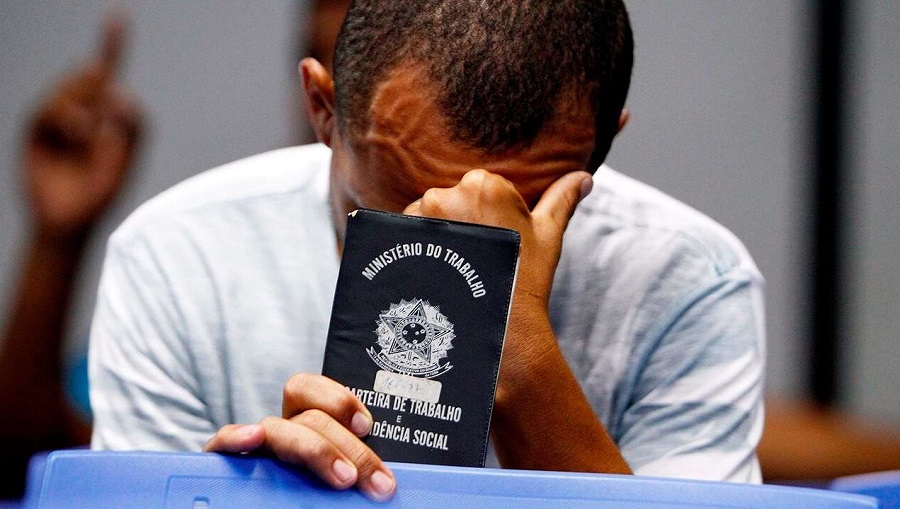RIO DE JANEIRO, BRAZIL – The impact of the novel coronavirus pandemic on the economy is expected to affect the wages of Brazilian workers for up to 9 years, according to the World Bank.
The marks left by the health crisis in Latin America will be particularly felt by less qualified workers and in a more vulnerable position in the labor market, the institution points out.
“In Brazil and Ecuador, although workers with higher education do not suffer the impacts of the crisis in terms of wages and experience short-term employment impacts, the effects on employment and wages of the average worker still linger 9 years after the onset of the crisis,” the text reads.

The results suggest that less-skilled and older workers in Brazil were the most severely hurt by the crisis, the document states.
A recent Datafolha survey points out that with the health crisis and the increase in unemployment, 45.6% of Brazilians say that their financial situation worsened during the novel coronavirus pandemic.
As an aggravating factor, in Brazil, Argentina and Chile, non-standard work (including self-employed workers) is growing in place of formal employment, according to the World Bank, although these workers’ profiles have changed since the mid-1990s.
“People in non-standard formal jobs are now younger and have a higher level of education than before.”
The report also mentions a scar effect in the labor market because of the crisis and assesses that the crisis triggered by the pandemic has highlighted the need to renew social protection instruments, to try to preserve the population’s income against labor market shocks.
Brazil has been experiencing record unemployment rates due to the pandemic. Between February and April, the rate reached 14.7% and the unemployed totaled 14.8 million. The data are part of the Continuous National Household Sample Survey (PNAD), from the Brazilian Institute of Geography and Statistics (IBGE).
According to the bank, one of the ways to mitigate the crisis would be to expand access to national unemployment insurance programs, make more dynamic transfers of protection networks and maintain a robust system of reemployment support services.
“Similarly, the principles of protecting workers rather than protecting jobs and untying protections may not help the crisis in the short-term, but are applicable in the medium-term.”
However, the World Bank considers that benefits such as unemployment insurance have limited effects in cushioning the losses caused by the health crisis, since it is guaranteed to formal workers while informal and self-employed workers (most affected by the crisis) are excluded from most benefits.

